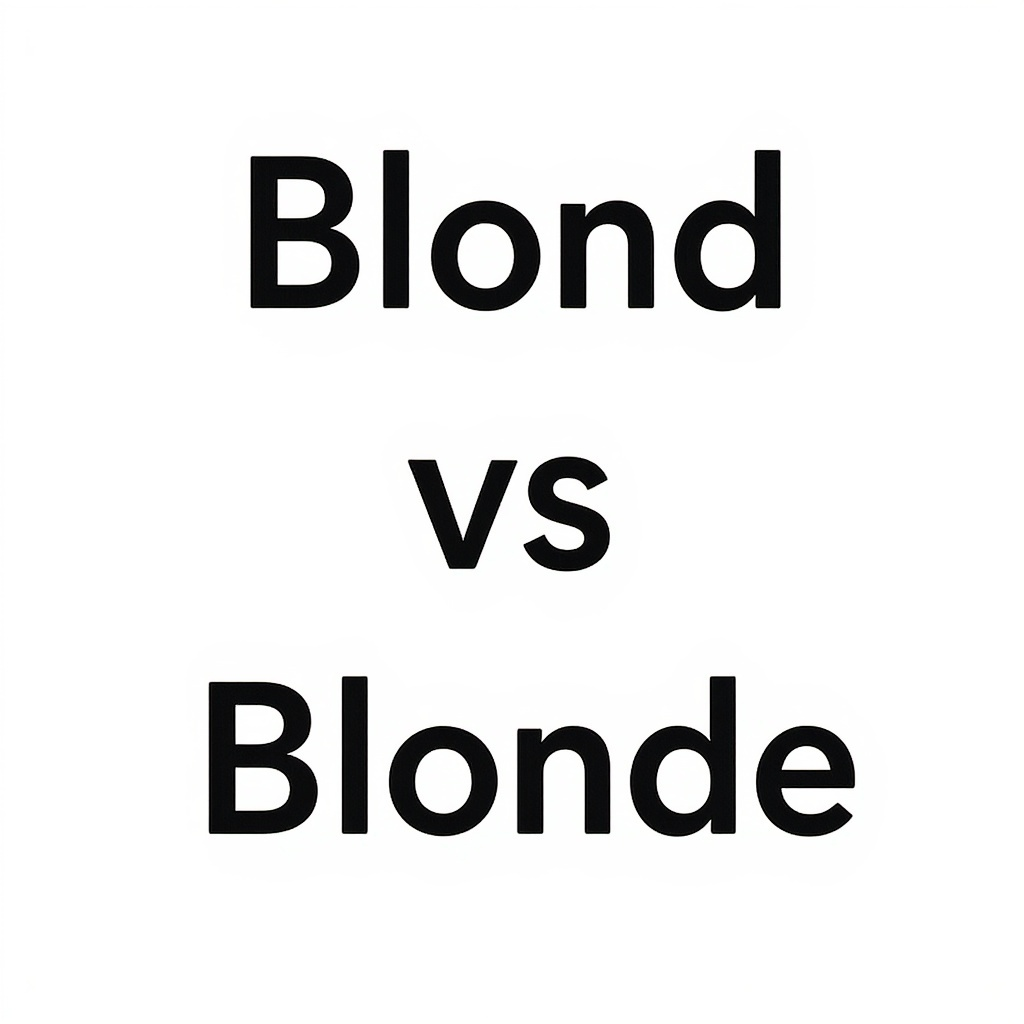"Blond" Vs "Blonde" - Which One Is Correct?

English can be tricky, especially when a single letter changes the meaning of a word. Blond and blonde are one of those cases. Both refer to hair color, but the difference comes down to gender and regional usage.
Midoo AI will help you understand when to use each form so your writing is always correct.
Blond – The Masculine Form
Blond (without the “e”) is typically used for men or boys. It can also be used as a general adjective to describe hair color regardless of gender in some contexts, especially in American English.
Examples of “blond”
- He has short blond hair.
- The blond actor won an award.
- My brother is a natural blond.
- Many Vikings are depicted with blond hair.
- A blond man entered the room.
💡 Tip: Blond = male / neutral in American English.
Blonde – The Feminine Form
Blonde (with an “e”) is usually used for women or girls. This is the more traditional French-influenced usage, and it’s still common in British English.
Examples of “blonde”
- She is a blonde with bright blue eyes.
- The blonde actress starred in a new movie.
- I met a blonde girl at the café.
- Many blonde models are featured in fashion magazines.
- The blonde woman smiled warmly.
💡 Tip: Blonde = female.
Adjective Usage
When using blond or blonde as an adjective before a noun, both forms are generally acceptable in American English, regardless of gender:
- She has blond hair. ✅
- He has blond hair. ✅
In British English, the gender distinction is more commonly observed: blond for males, blonde for females.
Quick Comparison Table
| Word | Gender / Usage | Example |
|---|---|---|
| Blond | Male, or general hair color (US) | The blond man walked in. |
| Blonde | Female | She is a blonde woman. |
Common Mistakes
❌ He is a blonde man. (British style prefers “blond”) ✅ He is a blond man.
❌ The blond woman entered the room. (British style prefers “blonde”) ✅ The blonde woman entered the room.
❌ I met a blonde boy. ✅ I met a blond boy.
FAQs
Can I use “blonde” for a man in American English?
Yes, it’s sometimes used in casual writing, but “blond” is more standard.
Does “blond” or “blonde” change in plural?
- Blonds = men with blond hair
- Blondes = women with blonde hair
Is the pronunciation different?
No. Both are pronounced /blɑːnd/ (UK) or /blɑnd/ (US).
Which form is more common worldwide?
“Blond” is more widely used in American English; “blonde” is more common for females in British English.
Can I just use “blonde hair” for everyone?
In informal writing, yes. But if you want to be precise in British English, keep the gender distinction.
Final Thoughts
Here’s the simple guide:
- Blond → male or general (especially US English)
- Blonde → female (especially British English)
Remember: the “e” at the end is your clue — blonde = female.